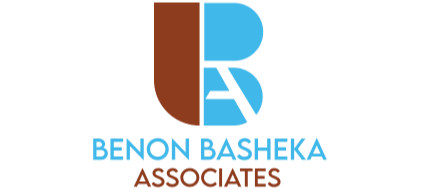R efugee law legal consultancy areas
A legal consultancy specializing in refugee law provides guidance, representation, and support to individuals seeking asylum, refugee status, or other forms of protection due to persecution or conflict in their home countries. Refugee law is governed by both national and international legal frameworks, including the 1951 Refugee Convention and its 1967 Protocol. Below are the key areas of focus for a legal consultancy in refugee law:
Asylum Applications
- Eligibility Assessment: Advising individuals on their eligibility for asylum based on fear of persecution due to race, religion, nationality, political opinion, or membership in a particular social group.
- Application Preparation: Assisting with the preparation and submission of asylum applications, including gathering evidence, drafting personal statements, and ensuring compliance with legal requirements.
- Credible Fear Interviews: Preparing asylum seekers for credible fear interviews, where they must demonstrate a genuine fear of persecution if returned to their home country.
Refugee Status Determination (RSD)
- Legal Representation: Representing individuals in Refugee Status Determination (RSD) procedures before national authorities, the United Nations High Commissioner for Refugees (UNHCR), or other relevant bodies.
- Appeals and Reviews: Assisting with appeals and reviews of negative RSD decisions, including preparing legal arguments, submitting new evidence, and attending hearings.
- Resettlement: Advising on resettlement options for recognized refugees, including applications for resettlement in third countries and navigating the resettlement process.
Protection from Deportation
- Non-Refoulement: Advocating for the principle of non-refoulement, which prohibits the return of individuals to a country where they face serious threats to their life or freedom.
- Temporary Protection: Assisting with applications for temporary protection, humanitarian protection, or complementary forms of protection for individuals who do not qualify as refugees but still face danger if deported.
- Stay of Deportation: Seeking a stay of deportation for individuals facing removal, particularly those with pending asylum applications or ongoing legal challenges.
Family Reunification
- Family Sponsorship: Assisting refugees and asylum seekers with family reunification applications, including sponsoring family members for legal entry and residence.
- Humanitarian Visas: Advising on the availability of humanitarian visas for family members of refugees, particularly in cases of urgent or exceptional need.
- Family Tracing: Working with organizations that assist in locating and reuniting family members separated due to conflict, persecution, or displacement.
Statelessness and Nationality Issues
- Statelessness Determination: Representing individuals in statelessness determination procedures to secure recognition and protection as stateless persons.
- Acquisition of Nationality: Assisting stateless persons or refugees in acquiring nationality in their country of residence or another country, including naturalization procedures.
- Prevention of Statelessness: Advising on legal strategies to prevent statelessness, particularly for children born to refugees or stateless parents.
Rights and Integration of Refugees
- Legal Status and Documentation: Assisting refugees in obtaining legal status, residence permits, and other necessary documentation to reside and work legally in the host country.
- Access to Services: Advising on refugees’ rights to access essential services such as healthcare, education, housing, and social welfare benefits.
- Employment and Economic Rights: Helping refugees navigate employment laws, access job opportunities, and understand their rights in the workplace.
Human Rights Violations and International Protection
- Human Rights Advocacy: Representing refugees and asylum seekers in cases involving human rights violations, including torture, inhumane treatment, and discrimination.
- International Protection Mechanisms: Engaging with international bodies, such as the UN Human Rights Council or the European Court of Human Rights, to seek protection and redress for violations of refugee rights.
- Refugee Camp Conditions: Advocating for improved conditions in refugee camps and ensuring that refugees’ rights are respected in these environments.
Gender-Based and Child-Specific Claims
- Gender-Based Persecution: Assisting women and LGBTQ+ individuals with asylum claims based on gender-based persecution, including cases involving sexual violence, forced marriage, or female genital mutilation.
- Child Asylum Seekers: Representing unaccompanied minors and other vulnerable children in asylum proceedings, including ensuring access to guardianship, education, and child-specific protections.
- Trafficking Victims: Providing legal assistance to victims of human trafficking seeking asylum or other forms of protection.
- Appeals and Judicial Review
- Challenging Negative Decisions: Representing clients in appealing negative asylum or refugee status decisions before national courts or international tribunals.
- Judicial Review: Seeking judicial review of administrative decisions that violate refugee rights, including cases involving procedural errors or unfair treatment.
- Strategic Litigation: Engaging in strategic litigation to advance refugee rights and set legal precedents that benefit broader groups of asylum seekers and refugees.
International and Regional Refugee Law
- International Legal Frameworks: Advising on compliance with international legal frameworks, including the 1951 Refugee Convention, its 1967 Protocol, and regional agreements such as the Dublin Regulation in the European Union.
- Regional Protection Mechanisms: Navigating regional protection mechanisms, such as the African Union’s Convention Governing the Specific Aspects of Refugee Problems in Africa or the Cartagena Declaration in Latin America.
- Cross-Border Movements: Addressing legal issues related to cross-border movements of refugees, including border controls, detention, and access to asylum procedures.
Detention and Freedom of Movement
- Challenging Detention: Representing refugees and asylum seekers detained by authorities, including challenging the legality of detention and seeking release.
- Freedom of Movement: Advocating for the right to freedom of movement within the host country or region, including opposing restrictions on residence or travel.
- Alternatives to Detention: Promoting alternatives to detention, such as community-based supervision or reporting requirements.
Refugee Advocacy and Policy Development
- Policy Advocacy: Engaging in advocacy efforts to influence national and international refugee policies, including lobbying for fair asylum procedures and stronger protections.
- Public Awareness: Raising public awareness about refugee issues and combating misinformation or xenophobia that affects refugee populations.
- Capacity Building: Providing training and capacity building for NGOs, government agencies, and legal professionals working with refugees.
Free Consultation
